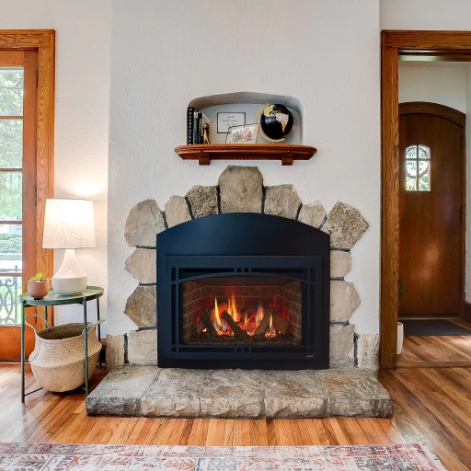Table of Contents
- 1 Key Takeaways:
- 2 What Are Gas and Propane Fireplaces?
- 3 Natural Gas Systems vs. Propane Systems at a Glance
- 4 Why Choose Dreifuss Fireplaces for Gas or Propane Fireplaces?
- 5 Factors to Consider when Choosing Between Gas and Propane Fireplaces
- 6 Real-World Examples: Gas and Propane Fireplaces in Action
- 7 Advantages of Gas Fireplaces
- 8 Advantages of Propane Fireplaces
- 9 Conclusion: Choosing the Right Fireplace for Your Needs
- 10 Frequently Asked Questions
Looking to cozy up your home with a gas or propane fireplace but not sure which one to choose?
We will explore the differences between gas and propane fireplaces, fireplace inserts and gas logs, the factors to consider when making your decision, and the advantages of each option.
Whether you prioritize convenience, cost-effectiveness, or energy independence, Dreifuss Fireplaces has you covered with the best options for your needs.
Find out which fireplace is the perfect fit for your home.
Key Takeaways:
- Consider availability and cost of fuel when choosing between gas and propane fireplaces.
- Gas fireplaces offer convenience, cost-effectiveness, and clean burning.
- Propane fireplaces offer portability, energy independence, and high heat output.
What Are Gas and Propane Fireplaces?
Gas and propane fireplaces are modern heating appliances that offer convenience and efficiency in providing warmth and ambiance to indoor spaces.
These fireplaces operate by burning gas logs or natural gas, allowing for easy control and maintenance of the flames.
They are known for their clean and consistent heat output, making them a popular choice for homeowners looking to enhance their living areas.
Installation of gas and propane fireplaces typically requires a connection to a natural gas line or a propane tank.
Professionals must handle this process to ensure safety and proper functionality.
Safety features such as automatic shut-off mechanisms and oxygen depletion sensors help prevent accidents and promote peace of mind for users.
In terms of environmental impact, gas and propane fireplaces are considered more eco-friendly compared to traditional wood-burning options.
They produce fewer emissions and require less maintenance, contributing to a greener household heating solution.
What Are the Differences Between Gas and Propane Fireplaces?
The differences between gas and propane fireplaces lie primarily in their fuel sources, with considerations such as fuel availability, cost, and environmental impact influencing the choice between the two options.
Gas fireplaces are commonly chosen for their convenience and consistent heat output, with the option of natural gas or propane depending on factors like availability and regional pricing.
On the other hand, propane fireplaces appeal to those seeking a more energy-efficient alternative, often selected when a natural gas line is unavailable or costly to install.
- The decision to opt for gas or propane also involves evaluating safety pilot options and the ease of maintenance, as these factors contribute to overall user experience and peace of mind.
- Considering fuel accessibility and availability is crucial in long-term planning, especially in regions where one fuel type may be more abundant or cost-effective than the other.
Natural Gas Systems vs. Propane Systems at a Glance
Natural Gas Fireplaces vs. Propane Fireplaces
| Feature | Natural Gas Fireplaces | Propane Fireplaces |
|---|---|---|
| Pros | – Lower operating cost in many regions
– Convenient for homes already connected to natural gas lines – Consistent supply without needing tank refills |
– Higher heat output per unit of fuel
– Can be installed anywhere, ideal for locations without natural gas service – Portable tank options allow flexibility in placement |
| Cons | – Installation can be costly if natural gas line is not already present
– Limited by the availability of natural gas in the area |
– Requires storage for propane tanks, which may need regular refilling
– Typically more expensive per BTU than natural gas – May not be as environmentally friendly as natural gas in certain aspects |
Natural Gas Fireplace Inserts vs. Propane Fireplace Inserts
| Feature | Natural Gas Fireplace Inserts | Propane Fireplace Inserts |
|---|---|---|
| Pros | – Tend to have lower fuel costs
– Seamless integration with existing natural gas lines – Continuous supply of fuel without interruption |
– Offers flexibility in installation locations
– Ideal for high heat output needs – Portable tanks mean no need for gas line installation |
| Cons | – Requires a natural gas line, limiting placement options
– Installation might require significant upfront investment if gas line extension is needed |
– Fuel costs can be higher due to propane prices
– Tank refilling or replacement adds a maintenance task – Storage of propane tanks requires space and safety considerations |
Natural Gas Log Sets vs. Propane Log Sets
| Feature | Natural Gas Log Sets | Propane Log Sets |
|---|---|---|
| Pros | – Lower cost of operation than propane
– Continuous use without worrying about refilling tanks – Typically produces less soot and cleaner burn |
– More versatile installation without the need for a natural gas line
– Higher heat output, making them suitable for colder climates – The flexibility of tank placement allows for easier aesthetic integration |
| Cons | – Installation can be restrictive without existing gas lines
– Not as portable as propane, limiting how you can arrange them |
– Requires regular monitoring and refilling of propane tanks
– Can have higher operational costs depending on propane prices – Safety considerations with storing and changing propane tanks |
Why Choose Dreifuss Fireplaces for Gas or Propane Fireplaces?
Dreifuss Fireplaces stands out as a premier choice for gas and propane fireplaces due to its legacy of expertise, commitment to quality installations, and comprehensive consultation services.
With their strong focus on Energy Efficiency Comparisons, Dreifuss Fireplaces not only ensures that you get a beautiful and functional fireplace, but also one that optimizes energy usage, helping you save on energy bills in the long run.
Their emphasis on Fireplace Safety and Maintenance means that your fireplace will be installed with the utmost care and attention to detail, ensuring both safety and longevity.
The licensed installers at Dreifuss Fireplaces bring a wealth of knowledge and experience to every project, making installation hassle-free and efficient.
Factors to Consider when Choosing Between Gas and Propane Fireplaces
When deciding between gas and propane fireplaces, factors such as fuel availability, installation costs, efficiency ratings, and long-term maintenance requirements play a crucial role in making an informed choice.
Considering the Fireplace Functionalities is essential for determining which type of fireplace aligns best with the intended usage.
Gas fireplaces are often preferred for their convenience and cleaner burn compared to propane fireplaces.
In terms of retrofitting fireplaces for efficiency, gas fireplaces may offer more options due to the availability of modern inserts and smart controls.
It’s also important to factor in the initial budget for installation, as gas fireplaces typically require a gas line, while propane fireplaces need a storage tank.
Availability of Fuel
The availability of natural gas or propane in a specific location is a critical factor that influences the decision to opt for a gas or propane fireplace, ensuring a reliable fuel source for consistent operation.
When considering the choice between natural gas and propane fireplaces, the convenience of access to fuel plays a pivotal role.
Factors such as the proximity of Gas Supply Lines and existing infrastructure contribute significantly to the ease of installation and ongoing operation of the fireplace.
Regional variations in Gas Supply Lines availability can impact the cost and feasibility of using one fuel type over the other.
Cost of Fuel
Comparing the cost of natural gas and propane as heating fuels is essential for homeowners considering gas or propane fireplaces, as it directly impacts long-term operational expenses and overall affordability.
Household Energy Planning involves strategically evaluating the ongoing costs associated with heating options like natural gas or propane, factoring in not just the initial installation expenses but also the regular fuel costs.
When analyzing the overall financial implications, one should consider the fluctuating prices of natural gas and propane, as these variations can significantly impact the monthly utility bills.
Efficiency-related savings are another crucial aspect to weigh in decision-making, as choosing the more efficient fuel source can lead to long-term cost savings.
Ventilation Requirements for Gas Fireplaces should also be factored in when assessing the overall financial impact, as proper ventilation can optimize fuel efficiency and reduce operational expenses over time.
Efficiency and Heat Output
Efficiency ratings and heat output capabilities of gas and propane fireplaces are crucial considerations for maximizing heating performance and energy savings, ensuring optimal warmth and comfort indoors.
When comparing gas and propane fireplaces, it’s important to look at their BTU ratings, as this indicates the amount of heat they can generate.
Typically, gas fireplaces have higher BTU ratings than propane ones, providing more warmth per hour.
In terms of energy efficiency, gas fireplaces generally have a slight edge over propane models, but both options are more efficient than traditional wood-burning fireplaces.
To better understand the numbers, you can use the Dreifuss Fireplaces Free Online Heating BTU Calculator.
Maintenance and Service Requirements
Understanding the maintenance needs and service requirements of gas and propane fireplaces is essential for ensuring smooth operation, longevity, and safety compliance, making regular upkeep a priority for homeowners.
Regular safety inspections are crucial to detect potential issues and ensure proper functioning; these inspections often include checking for gas leaks, examining the ignition system, and verifying proper ventilation.
Cleaning procedures for gas and propane fireplaces vary but commonly involve removing dust and debris from the burners, logs, and glass covers to maintain efficiency and prevent blockages.
Professional servicing is recommended at least once a year to address more in-depth maintenance tasks, calibration of the Remote Control and Smart Features, and overall system performance.
Seasonal fireplace preparation is vital to ensure your fireplace is ready for use; this includes checking for wear and tear, inspecting the chimney, and testing the functionality of components before colder weather sets in.
Related Article: The Benefits of a Natural Gas Fireplace for Your Home
Real-World Examples: Gas and Propane Fireplaces in Action
To further illuminate the decision-making process, let’s explore some real-world scenarios where homeowners chose between gas and propane fireplaces based on their specific needs and circumstances.
Urban Convenience with Natural Gas
In a bustling city environment, where natural gas lines are readily available, a homeowner opts for a natural gas fireplace.
The decision was driven by the convenience of connecting to the existing gas supply, the allure of lower ongoing fuel costs, and the desire for an easy-to-use heating solution that complements their modern lifestyle.
This choice provided them with a consistent heat source that could be easily controlled via a wall switch or remote, making it a perfect fit for their urban oasis.
Rural Warmth with Propane
In contrast, a family living in a rural area without access to natural gas lines found their solution in a propane fireplace.
The portability of propane tanks allowed them to install a fireplace in their remote cabin, bringing warmth and ambiance to their cozy retreat.
The high heat output of the propane fireplace made it an ideal choice for colder nights, and the ability to store several tanks ensured they were never without heat, even in the depths of winter.
Seasonal Flexibility
Another homeowner, living in a region with distinct seasons, chose a propane fireplace for their outdoor patio.
The appeal of extending their outdoor living into the cooler fall evenings was too good to pass up.
The propane fireplace became a focal point for gatherings, offering warmth and a captivating flame without the smoke and maintenance of a wood-burning pit.
Its portability also meant they could move the fireplace to different areas of the patio, depending on the occasion and need.
Energy-Efficient Upgrade
Facing the inefficiency of an old, wood-burning fireplace, a homeowner decided to retrofit their existing setup with a gas fireplace insert.
After consulting with Dreifuss Fireplaces, they opted for a natural gas insert due to its high efficiency, low maintenance, and the environmental benefits of cleaner burning.
This upgrade not only enhanced the aesthetic appeal of their living space but also significantly reduced their heating costs and carbon footprint.
Advantages of Gas Fireplaces
Gas fireplaces offer unparalleled convenience, user-friendly operation, and clean-burning fuel options, making them a popular choice for modern homeowners seeking efficient heating solutions.
Whether you are looking to warm up your living room, bedroom, or outdoor space, gas fireplaces provide versatile indoor and outdoor heating solutions.
With their convertible technology in fireplaces and inserts, you can easily switch between traditional logs or contemporary crystals to suit your decor.
Plus their aesthetic appeal, gas fireplaces are known for their low maintenance requirements and energy efficiency, offering a sustainable way to stay cozy during chilly evenings.
Convenience and Ease of Use
The convenience and ease of use associated with gas fireplaces stem from their simple operation, instant heat availability, and programmable controls that enhance the overall heating experience for homeowners.
One of the standout features that make gas fireplaces a popular choice among homeowners is the Real Flame Experience they offer.
This carefully engineered technology creates a remarkably realistic flame effect that closely mimics the look of a traditional wood-burning fireplace, adding ambiance and charm to any room.
Gas fireplaces are equipped with Smart Fireplace Features that allow users to control various settings conveniently.
From adjusting the flame height and heat output to setting timers and temperature limits, these innovative options make it easy to customize the fireplace operation to suit individual preferences.
The automation options available with some gas fireplaces enable users to program heating schedules, ensuring that the fireplace can efficiently warm the living space without constant manual adjustments.
This hands-free approach adds an extra layer of comfort and convenience to the overall fireplace experience.
Cost-effectiveness
Gas fireplaces are renowned for their cost-effectiveness, offering efficient heating solutions that maximize energy usage and translate into long-term savings for homeowners, making them a smart investment choice.
One of the key advantages of gas fireplaces lies in their energy efficiency.
They have a high level of energy consumption and output, ensuring that a significant portion of the fuel is converted into heat, making them a more sustainable choice.
This efficiency not only contributes to lower operational costs but also reduces the overall environmental impact by using clean-burning fossil fuels.
The affordability benefits extend beyond just the initial purchase, as gas fireplaces require minimal maintenance and have lower installation costs compared to traditional wood-burning alternatives.
Related Article: Whats to Cost of Installing a Gas Fireplace
Clean Burning
The clean-burning nature of gas fireplaces contributes to reduced emissions, environmental impact, and indoor air quality concerns, aligning with eco-conscious homeowners’ preferences for sustainable heating solutions.
Gas fireplaces offer an aesthetic appeal similar to traditional wood-burning fireplaces without the emissions produced by burning wood.
This not only helps in reducing harmful pollutants entering the atmosphere but also minimizes the amount of greenhouse gases released, which is crucial for combating climate change.
These smokeless and emberless fire features promote a cleaner indoor environment, avoiding the irritating odors and particles often associated with wood-burning fires.
By opting for a gas fireplace, homeowners can enjoy both the cozy ambiance of a fireplace and contribute to a healthier planet and home.
Advantages of Propane Fireplaces
Propane fireplaces offer exceptional portability, versatile installation options, and high heat output capabilities, making them ideal for locations without natural gas access or as backup heating sources.
One of the key advantages of propane fireplaces is their flexibility when it comes to installation.
Since they do not rely on a fixed gas line, they can be easily moved to different areas within a home or even taken outdoors for gatherings or camping trips.
This portability makes them highly convenient and adaptable to varying needs and preferences.
In terms of heating power, propane fireplaces are known for their efficiency in heat output.
They can quickly and effectively warm up a room, providing a cozy ambiance during colder months.
The availability of large propane tank options means you can enjoy extended usage without the need for frequent refills, making them a reliable heating solution.
Propane fireplaces offer a safe alternative to traditional wood-burning fireplaces, minimizing the risk of fire hazard prevention.
With no concerns about sparks, embers, or creosote buildup, they provide a clean and secure heating option for homes, offices, cabins, or any other indoor space.
Their convenience, comfort, and safety features make them a popular choice for a wide range of settings.
Portability and Versatility
The portability and versatility of propane fireplaces allow for easy relocation, installation in various spaces, and compatibility with different setups, catering to homeowners’ changing heating needs.
Propane fireplaces offer exceptional flexibility for homeowners in managing their heating solutions.
One key advantage is the Propane and Natural Gas Appliances Compatibility, ensuring seamless integration with existing gas systems.
The Zoning Heating Solutions provided by propane fireplaces allow users to control specific heating areas, optimizing comfort and energy efficiency.
The mobility of propane fireplaces enables them to be used in different rooms or outdoor settings, providing warmth wherever it is needed.
Energy Independence
Propane fireplaces offer energy independence benefits by not relying on external power sources, providing consistent heating performance even during power outages or disruptions, enhancing reliability for homeowners.
Furthermore, Propane fireplaces are also a reliable backup heating option, ensuring warmth when traditional heating methods fail, such as during extreme weather events or technical issues with central heating systems.
This versatility makes them a valuable addition to any home, offering peace of mind and comfort in challenging situations.
High Heat Output
Propane fireplaces excel in delivering high heat output levels, ensuring rapid warmth distribution, efficient heating performance, and comfortable indoor environments, making them suitable for heating larger areas effectively.
When comparing Traditional vs. Contemporary Fireplace Designs, propane fireplaces stand out for their versatility and style options.
They offer a wide range of designs to complement both classic and modern aesthetics, making them a popular choice for various home interiors.
The Heating Capacity and BTUs of propane fireplaces are noteworthy.
With their high BTU ratings, these fireplaces can efficiently heat large spaces, providing warmth and coziness during colder months.
Their heating efficiency results in cost-effective and energy-saving solutions for homeowners.
Conclusion: Choosing the Right Fireplace for Your Needs
Selecting the appropriate fireplace type, whether gas or propane, involves evaluating individual preferences, heating requirements, budget considerations, and long-term energy planning to ensure optimal comfort and satisfaction.
One crucial aspect to consider when deciding between gas and propane fireplaces is the fuel type decision making.
While gas fireplaces tend to provide a more consistent heat output, propane fireplaces offer the flexibility of being independent of a natural gas line.
This choice often depends on availability and convenience.
Additionally, budget planning is essential as you weigh the upfront installation costs against long-term energy efficiency.
By conducting a thorough analysis, you can find a cost-effective heating solution that meets your specific needs.
If you need any additional help, feel free to contact Dreifuss Fireplaces.
Frequently Asked Questions
1. What are the benefits of choosing natural gas for a gas fireplace?
Natural gas is a more environmentally friendly option compared to propane, as it produces fewer emissions and is a cleaner burning fuel. It is also typically more cost-effective and readily available in many areas.
2. Can I convert my gas fireplace from propane to natural gas?
Yes, most gas fireplaces are able to be converted from propane to natural gas with the proper equipment and professional installation. However, it is important to check with the manufacturer and a certified technician before attempting to convert your fireplace.
3. Is propane a safer option for gas fireplaces?
Both natural gas and propane are safe options for gas fireplaces when installed and used properly. However, many consider propane a more stable and reliable fuel source because, unlike natural gas, it does not require a constant supply of electricity.
4. How do I determine which fuel type is best for my gas fireplace?
It is important to consider factors such as cost, availability, and environmental impact when choosing between natural gas and propane for your gas fireplace. Consulting with a professional fireplace company, like Dreifuss Fireplaces, can also help you make an informed decision.
5. Are there any maintenance differences between natural gas and propane fireplaces?
While both fuel types require regular maintenance, natural gas fireplaces typically have fewer maintenance needs as they burn cleaner and produce less residue. However, it is important to have both types of fireplaces serviced annually by a certified technician.
6. Can I use natural gas and propane interchangeably for my gas fireplace?
No, natural gas and propane are not interchangeable fuel sources for gas fireplaces. Each type requires specific equipment and installation to ensure safe and efficient operation. Attempting to use the wrong fuel type can result in serious damage to your fireplace and potential safety hazards.
Latest Articles

What Is An NG (Natural Gas) Indicator And Why You Need It For Your Fireplace
Table of Contents1 Understanding Natural Gas Fireplaces2 What is an NG Indicator?3 Importance of NG Indicators for Safety4 Types of NG Indicators5 Installation and Maintenance of NG Indicators6 Signs of a Faulty NG Indicator7 Frequently Asked Questions Natural gas fireplaces are a favored option among numerous homeowners due to their convenience and effectiveness. But, what is an NG (Natural Gas) indicator and why you need it for your fireplace? It is imperative to comprehend how they function and the significance of having an NG (Natural Gas) indicator for safety purposes. This article delves into the definition and significance of NG indicators. We will discuss the potential hazards associated with the absence of one and the various types of indicators accessible. Also, we will discuss installation and maintenance recommendations, and methods to recognize and rectify issues with malfunctioning indicators. Stay well-informed and ensure the safety of your home by referring to this exhaustive guide. Understanding Natural Gas Fireplaces Natural gas fireplaces serve as an efficient and convenient heating option for numerous households. They utilize natural gas as a fuel source to deliver consistent warmth and ambiance. How They Work and Why They Need NG Indicators The operation of natural gas fireplaces involves igniting natural gas to generate heat. This process requires diligent monitoring to ensure both safety and efficiency, a task facilitated by the use of NG indicators. NG indicators play a critical role in detecting potential gas leaks. They enable residents to promptly address and mitigate any associated hazards. Through continuous monitoring of gas levels and providing timely warnings and alerts, NG indicators uphold a secure indoor environment. It is imperative to ensure that these indicators function properly to facilitate the effective operation of natural gas fireplaces. This helps mitigate the inherent risks linked to gas leaks. What is an NG Indicator? An NG indicator is a specialized device equipped with advanced sensors and technology. It is specifically designed to detect natural gas leaks and monitor gas pressure in appliances, such as fireplaces. Definition and Purpose The NG indicator functions as a detector that monitors gas appliances for potential leaks. It provides essential functionality to ensure safety in households utilizing natural gas. These detectors play a crucial role in protecting residences by notifying occupants of dangerous gas leaks long before they escalate into perilous situations. Through continuous monitoring of gas levels in the vicinity, NG indicators offer an additional layer of protection. This is particularly important in properties that rely on gas-operated fireplaces or stoves. These devices not only help avert potential disasters but also enhance the overall peace of mind of homeowners. They assure them that their living spaces are equipped with reliable safety features. Importance of NG Indicators for Safety Natural gas indicators are essential for maintaining safety in households equipped with natural gas appliances. These devices serve as a proactive measure to promptly detect gas leaks. This offers homeowners a sense of security and assurance. Potential Dangers of Not Having an NG Indicator The absence of an NG indicator in residences equipped with natural gas appliances can pose significant hazards. This includes the risk of undetected gas leaks , carbon monoxide poisoning , and pilot outages that may lead to dangerous situations. These potential risks can profoundly impact indoor air quality. They directly influence the health and safety of individuals residing in the household. Undetected gas leaks can go unnoticed, gradually permeating the air and creating a potentially explosive environment. Insufficient ventilation from undetected exposure to carbon monoxide can lead to serious health complications. These range from mild symptoms such as dizziness to fatal poisoning. Without proper monitoring from an NG indicator, families are left susceptible to these concealed threats. This underscores the critical importance of implementing proactive measures to mitigate such risks. Types of NG Indicators Indicators for Natural Gas (NG) are available in diverse types. Each presents distinct detection capabilities tailored to specific requirements, encompassing both manual and automated alternatives. Manual vs. Automatic Indicators Manual NG indicators require user intervention for monitoring gas levels and identifying leaks. On the other hand, automatic indicators employ sophisticated technology to deliver continuous, real-time monitoring. This heightened efficiency and oversight enhance safety protocols. Conventional manual indicators rely on individuals to physically inspect and evaluate gas levels periodically. This renders them more susceptible to human errors. Conversely, automatic indicators feature sensors capable of promptly detecting even the most minute fluctuations in gas levels. This establishes a more dependable and precise monitoring mechanism. Automatic indicators can activate alerts and shut-off systems upon detecting a leak. This ensures immediate action to avert potential hazards. This advanced technology enhances safety protocols and instills a sense of command and assurance among users. Installation and Maintenance of NG Indicators The reliable and accurate performance of NG indicators necessitates proper installation and consistent maintenance. This often entails professional installation and adherence to recommended service guidelines. Proper Installation and Regular Maintenance Tips The proper installation of NG indicators involves adhering to the specifications in the user manual. Maintenance protocols entail strict adherence to a predetermined maintenance schedule to ensure sustained operational efficiency. During the installation phase, it is imperative to verify that the NG indicators are securely affixed in the designated location as stipulated by the manufacturer. Crucial steps include confirming power source compatibility and ensuring proper grounding of the device to optimize performance. Calibration of the indicator must be executed meticulously to ensure precise readings. Regarding maintenance, essential practices include regular inspection for signs of wear, thorough cleaning of the indicator components, and routine functionality tests. By allocating time to a consistent maintenance regimen, the NG indicator can operate with optimal efficiency over an extended duration. Signs of a Faulty NG Indicator Recognizing indicators of a malfunctioning NG indicator is essential for upholding safety and performance standards. Inaccuracies and detection issues can undermine the efficacy of these devices. Identifying and Addressing Issues The process of identifying and addressing issues related to NG (natural gas) indicators requires a systematic troubleshooting approach. This ensures their optimal performance

What You Need To Know About Gas Log Set Safety And Installation Considerations
Table of Contents1 Understanding Gas Log Sets2 Safety Considerations for Gas Log Sets3 Installation Guidelines for Gas Log Sets4 Maintaining and Troubleshooting Gas Log Sets5 Frequently Asked Questions Gas log sets are a favored option among homeowners seeking to enjoy the comfort and atmosphere of a conventional fireplace without the inconvenience of wood. This article tells you what you need to know about gas log set safety and installation considerations. Before incorporating one into your residence, it is imperative to understand the safety considerations associated with their use. This discussion delves into the potential hazards linked with gas log sets. It presents crucial precautions to uphold the safety of your home. Also, it outlines proper installation procedures and offers insight into common errors to avoid. Finally, it provides advice on maintenance and troubleshooting. Gain comprehensive knowledge on gas log set safety and installation considerations. Understanding Gas Log Sets Comprehending gas log sets is essential for individuals seeking to elevate their fireplace experience, and for gas lag set safety and installation. These heating appliances can operate on either natural gas or propane. In addition, they are available in a range of styles, including vented, ventless, and vent-free options. They provide an array of benefits and customization opportunities through various fireplace accessories. What are Gas Log Sets? Gas log sets are meticulously crafted artificial logs. They are designed to imitate the appearance and functionality of authentic wood logs within fireplaces. These gas log sets typically consist of ceramic or refractory concrete logs that have been skillfully molded and painted. This allows them to replicate the natural grain and texture of real wood. The logs are arranged in various configurations within the fireplace. They establish a realistic and welcoming ambiance. In addition to the logs, gas log sets often include fireplace accessories such as glowing embers. Accessories also include decorative stones, and even pine cones to enhance the overall aesthetic appeal. Homeowners can select from an array of placement options. These include traditional wood stack, cascading driftwood, or a contemporary geometric arrangement. Homeowners can align their preferred style and design preferences. Safety Considerations for Gas Log Sets Safety considerations for gas log sets are of utmost importance to guarantee a secure and pleasant fireplace experience. It is essential to address potential hazards such as carbon monoxide exposure, gas leaks, and fire safety to maintain a safe environment for homeowners. Potential Hazards and Precautions Gas log sets come with potential hazards that must be taken seriously, including the risks of gas leaks, carbon monoxide poisoning, and fire incidents. It is imperative to establish and adhere to rigorous safety measures to ensure the well-being of individuals and properties involved in the use of gas log sets. Gas leaks represent a significant hazard when utilizing gas log sets. They can result in the accumulation of combustible gas within the premises, heightening the possibility of explosions or fires. Carbon monoxide, an insidious gas generated during incomplete combustion, poses a grave threat due to its colorless and odorless nature, making it undetectable without proper monitoring. To address these risks effectively, it is vital to install carbon monoxide detectors and gas leak sensors in the vicinity of the gas logs. Routine maintenance checks on the gas log system, including cleaning and inspection procedures, are critical to ensure safe operations and the prompt identification of potential issues. In case of a gas leak or suspected presence of carbon monoxide, immediate evacuation of the affected area is paramount, followed by prompt contact with emergency services. Recognizing the distinct odor of rotten eggs associated with natural gas can serve as an early warning sign, prompting swift actions to avert any potential accidents. Installation Guidelines for Gas Log Sets The installation of a gas log set necessitates meticulous planning and strict adherence to specific guidelines. This includes verifying a secure gas connection, ensuring proper gas lines are in place, and complying with local building codes. Often, the complexity of these requirements may require the expertise of a certified technician. Proper Installation Techniques The appropriate installation procedures for gas log sets involve the secure connection of gas lines, meticulous adherence to installation manuals, and strict compliance with local building codes. It is imperative to prioritize the guarantee of secure gas connections to avert leaks and potential safety hazards. During the installation of gas log sets, utilizing suitable sealants and fittings is essential to establish a tightly sealed connection. The correct installation of gas lines is critical for both the safety and operational efficacy of the gas log set. Reference to the installation manual is highly advisable for detailed, step-by-step guidance to prevent inaccuracies and ensure the successful establishment of the gas log set. Consistently adhering to building codes and regulations upholds safety standards. Seeking guidance and confirmation from a certified technician before and after installation can offer invaluable support and assurance throughout the process. Common Installation Mistakes to Avoid It is imperative to avoid common installation errors to ensure the secure and effective operation of gas log sets. This includes verifying proper gas connections and compliance with building codes. Improper gas connections can result in leaks and potential hazards, underscoring the importance of verifying the tightness and correct alignment of all fittings. Failure to adhere to building codes can lead to structural complications, penalties for non-compliance, or even safety concerns. To prevent these oversights, it is advised to consult the manufacturer’s installation guidelines and strictly adhere to local regulations. Engaging a certified technician for the installation of gas log sets guarantees that the procedure is carried out accurately and securely. This provides assurance that the system is functioning as intended. Maintaining and Troubleshooting Gas Log Sets Regular maintenance and troubleshooting of gas log sets are imperative to uphold their optimal performance and safety. This includes thorough examination of the pilot light, pilot assembly, and other gas appliances to preserve heating efficiency and promptly resolve any arising issues. Tips for Maintenance and Repair Ensuring the proper maintenance of your gas log set necessitates conducting

Key Considerations For Using Compressed Liquid Propane In Fireplace Installation
Table of Contents1 What is Compressed Liquid Propane?2 Benefits of Using Compressed Liquid Propane in Fireplaces3 Safety Precautions for Installing Compressed Liquid Propane Fireplaces4 Installation Process for Compressed Liquid Propane Fireplaces5 Maintenance and Care for Compressed Liquid Propane Fireplaces6 Alternative Fuel Options for Fireplaces7 Frequently Asked Questions If you are contemplating the use of compressed liquid propane in your fireplace installation, this discussion will delve into the advantages of adopting this alternative fuel option. These benefits include enhanced efficiency, cost savings, and important safety precautions to consider. Furthermore, a detailed step-by-step guide on the installation process will be provided, along with recommendations for maintenance and care. A comparison of various fuel options for fireplaces will also be conducted to assist you in making an informed decision. We encourage you to stay engaged to gain insights into optimizing your fireplace’s capabilities with compressed liquid propane. What is Compressed Liquid Propane? Compressed Liquid Propane is a versatile energy source contained in a high-pressure propane tank. It finds extensive utility in both residential and commercial settings, prominently including fireplaces. Recognized for its convenience and efficiency, Compressed Liquid Propane emerges as a favored option for heating residential spaces and facilitating culinary pursuits across various environments. Additionally, it serves as a viable fuel substitute in vehicular contexts, portable cooktops, and outdoor grilling scenarios due to its propensity for clean combustion. The attribute of portability, coupled with ease of storage, positions Compressed Liquid Propane as an optimal energy source for individuals residing off the conventional grid. It is also great for engaging in outdoor activities such as camping and recreational vehicle (RV) travel. Moreover, the high energy density inherent to Compressed Liquid Propane renders it a dependable choice for sustaining generators during instances of power disruptions. Benefits of Using Compressed Liquid Propane in Fireplaces Utilizing Compressed Liquid Propane for fireplace installation presents several benefits. These include enhanced fuel efficiency, convenience, cost-effectiveness, and a favorable environmental footprint. These attributes render it a recommended option for heating solutions, applicable to both on-grid and off-grid settings. Efficiency and Cost Savings The utilization of Compressed Liquid Propane in fireplaces offers significant advantages, notably in terms of high fuel efficiency and cost-effectiveness. These attributes are underscored by the exceptional BTU rating and overall heating efficiency of Compressed Liquid Propane. The elevated fuel efficiency exhibited by Compressed Liquid Propane fireplaces necessitates less fuel to generate the same level of heat compared to traditional wood-burning fireplaces or electric heating systems. Consequently, homeowners can realize cost savings on their heating expenditures over an extended period. Moreover, the clean-burning characteristics of propane minimize maintenance costs linked to soot and ash cleanup. This further enhances the cost-effectiveness of employing propane fireplaces. Safety Precautions for Installing Compressed Liquid Propane Fireplaces Ensuring safety is of utmost importance during the installation of Compressed Liquid Propane fireplaces. This requires strict adherence to safety regulations, meticulous attention to proper ventilation requirements, careful control of ignition sources, and the incorporation of carbon monoxide and gas leak detection systems. Important Safety Measures Essential safety protocols for the installation of Compressed Liquid Propane fireplaces encompass adherence to fire safety regulations. Engaging in professional assessments and employing sophisticated gas leak and carbon monoxide detection mechanisms is crucial. Professional evaluations play a critical role in identifying any prospective hazards or irregularities within the fireplace infrastructure. These assessments are vital in ensuring the operational integrity of all components and compliance with safety protocols. Routine inspections serve to forestall potential fire incidents, gas discharges, or carbon monoxide emissions that could pose significant threats to both the property and individuals in the vicinity. The utilization of advanced gas leak and carbon monoxide detection systems serves as an additional safeguard by promptly notifying occupants of any elevated levels of these hazardous gases. Installation Process for Compressed Liquid Propane Fireplaces The installation procedure for Compressed Liquid Propane fireplaces encompasses several critical steps. These include: Adhering to installation guidelines Correctly positioning the propane tank Ensuring precise gas line installation Optimizing heat output Monitoring pressure regulation Establishing the pilot light Step-by-Step Guide The installation process of Compressed Liquid Propane fireplaces involves a systematic approach. This begins with the construction of the firebox, followed by the installation of the gas control valve, setup of the ignition system, design of the flue, and verification of a suitable combustion air supply. The construction of the firebox assumes critical importance as it serves as the foundation of the fireplace structure. It securely holds the combustible materials in place. Subsequently, the gas control valve plays a key role in managing the propane flow, guaranteeing safe and efficient operation. The installation of the ignition system facilitates convenient and reliable fire initiation. Designing the flue is a necessary step to direct exhaust gases outside, thus preventing their accumulation indoors. Moreover, ensuring a proper combustion air supply is essential to sustain optimal burning conditions and enhance fuel consumption efficiency. Each component contributes significantly to the functionality and safety of the fireplace installation process. This underscores the importance of meticulous attention to detail and adherence to established protocols. Maintenance and Care for Compressed Liquid Propane Fireplaces Consistent maintenance and attention to Compressed Liquid Propane fireplaces are imperative to guarantee their optimal functionality. This includes adherence to prescribed maintenance protocols, regular chimney upkeep, prevention of soot accumulation, and scheduling of routine propane deliveries and professional inspections. Tips for Keeping Your Fireplace in Good Condition For the maintenance of your Compressed Liquid Propane fireplace, it is essential to conduct regular checks on ignition sources. Monitor flame appearance, clean the gas burner and pilot assembly, and verify the correct operation of the safety shut-off valve. The inspection of ignition sources requires a detailed examination of the electronic igniter. This helps identify any signs of damage or corrosion and ensures proper sparking upon activation. Monitoring flame appearance involves observing a consistent blue flame with minimal flickering, which signifies efficient combustion. Cleaning the gas burner and pilot assembly can be performed using a soft brush or compressed air to eliminate any dirt or debris that may


















































































